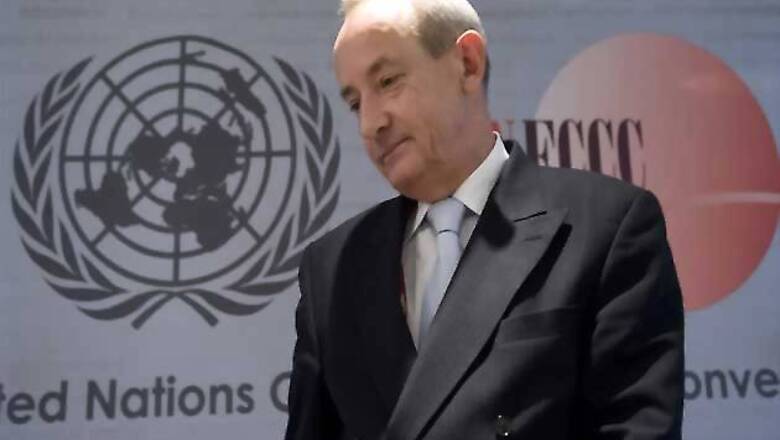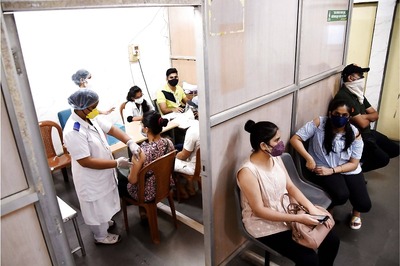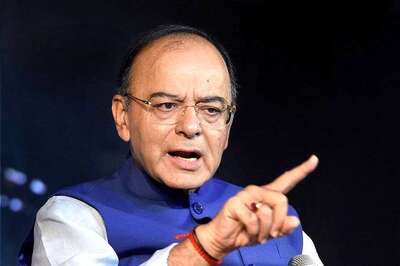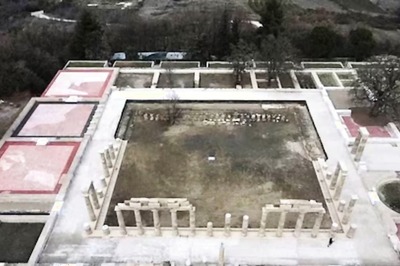
views
Bonn: A new fissure has opened up between emerging economies and other developing countries at the May 31-June 11 talks here to prepare for the next climate summit in Mexico.
The issue is whether the UN Framework Convention on Climate Change (UNFCCC) secretariat should work out the greenhouse gas (GHG) emission reductions required if the world is to keep global temperature rise to 1.5 degrees Celsius instead of two degrees.
Led by Barbados, countries belonging to the Association of Small Island States (AOSIS) Wednesday evening asked the secretariat to work out the numbers. These countries are most at risk from sea level rise. Climate change is also reducing farm output and making droughts, floods and storms more frequent and more severe already.
The AOSIS and the group of Least Developed Countries (LDC) have been asking for global temperature rise to be kept within 1.5 degrees instead of the two degrees agreed to by 127 countries and written into the Copenhagen Accord.
But emerging economies including India and China are afraid if the numbers come out, the emission reductions required will be found to be so large that developed countries will say their reductions would not be enough and will pressure the large developing countries to sign up to legally binding emission caps.
"We have made our position clear," a senior member of the Indian government delegation told IANS, speaking on the condition of anonymity.
"We are not going to agree to legally binding emission caps, leave alone cuts. But these developed countries keep trying to encircle us through their proxies.
"It is difficult for us to oppose something being said by AOSIS or LDCs, because that will show up the fissures within the G77 (group of 77, which actually has over 130 developing countries) and China. So we have spoken only in the closed door meetings, and we have requested China to speak to the African countries, where they have a lot of influence," he said.
At the open meeting, it was the delegate from Saudi Arabia who opposed the idea of the UNFCCC secretariat carrying out this study, a move for which the country was pilloried by the NGOs following the talks here.
Indian NGOs do not agree with the position of their government either.
Srinivas Krishnaswamy of the Vasudha Foundation told IANS: "We know the emission cuts required to move from two degrees to 1.5. It has been studied by the EU (European Union) and the Pew Centre (a research organisation based in the US). But the study brought out by the secretariat will give it legitimacy, and it's something the world needs to have."
Raman Mehta from the India office of international NGO ActionAid added: "This study is necessary and should have been brought out earlier. Now that the demand for it is finally out in the open, India or any other country really has no moral right to oppose it."
Small island countries have been demanding that global temperature rise be kept within 1.5 degrees Celsius on the average because scientific studies have shown they risk losing much of their land if global warming goes further. The earth has already warmed by 0.7 degrees since the start of the Industrial Age due to emissions of GHG - mainly carbon dioxide - by human activities.
But the emerging economies say their emissions need to rise if they are to provide energy to their entire populations. As the Indian government delegate pointed out, 40 percent of Indians still do not have access to electricity from the grid.
Providing this through conventional means is bound to raise emissions, though India has committed that its emissions intensity per unit of GDP growth will come down by 20-25 percent by 2020.




















Comments
0 comment